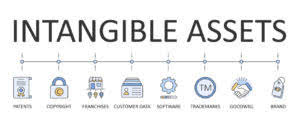What Is Invoice Factoring?

Learn more about the key factors that are driving the widening skills gap in the construction industry and explore actions your business can take to address the issue. Plus, you might have to deal with fees and potential strain on customer relationships if they don’t like dealing with a third party. This means you get cash immediately and don’t have to wait for long payment terms to wrap up. You’re essentially putting your invoices up as collateral to get a loan or line of credit. If only a few of your customers tend to cause delays, whole ledger factoring may not be necessary. But it’s worth noting that this peace of mind usually comes with higher fees.
Easier Qualification Compared to Loans

Cash flow problems and inefficient accounting processes contribute to the failure of many small businesses. To grow your venture sustainably, you need QuickBooks ProAdvisor to bill your customers or clients effectively. Likewise, you must maintain financial records using thorough accounting systems.
Deducting Factoring Expenses
Checking the fees outlined in the factoring contract is vital to avoid unexpected costs later. Thoroughly understanding the terms and conditions of factoring agreements is crucial to avoid future disputes and financial surprises. This diligence ensures that businesses can fully leverage the benefits of invoice factoring. Spot factoring involves selling a single invoice to a factoring company, providing immediate funding for one large outstanding invoice.
- Vetting your factor’s ability to access funds is critical as a result.
- Similar to factoring, invoice financing allows businesses to obtain a cash advance by borrowing against unpaid invoices.
- It’s a perfect example of using modern financing tools to turn sales momentum into sustainable growth.
- It’s 5% of the invoice value, which comes out to $400 for each month, or $800 total until the invoice is due.
- Once you are a regular client, you may receive cash anywhere from a few hours to a couple of days.
Use Factoring to Invest in Tax-Saving Strategies
Many businesses use invoice factoring to expand their businesses because the invoice factoring process is quicker and easier than trying to apply for a business loan from a bank. It also frees up time you would otherwise spend chasing https://www.bookstime.com/ invoices and lets you focus on the growth and success of your business. In accounts receivable factoring, the invoices are the assets for sale. The factor purchases the invoices and pays the business anywhere from 60% to 95% of the face value of those invoices.
Fueling Rapid Growth
In exchange, the business doesn’t have to wait for the 30, 60, or 90-day term mentioned on the invoice. Instead, it gets up to 90% of the invoice amount within a few business days. Selling invoices can make your cash flow pattern more predictable. Factoring allows business owners to allocate free cash to payroll funding, sales, and business development. Additionally, we conduct credit checks and due diligence on your potential customers.
This lenient approval process allows businesses to be accepted even if they wouldn’t qualify with a traditional lender. If you have a recourse factoring agreement, you are responsible for the debt if your customer fails to repay their invoice. With non-recourse factoring, on the other hand, the factoring company accepts the loss if your customer doesn’t pay. Invoice financing, sometimes confused with factoring, involves using your unpaid invoices as collateral for a loan. A business line of credit provides flexible access to funds, allowing you to borrow only what you need and pay interest on the amount used. This option is ideal for managing short-term cash flow gaps or covering unexpected expenses.
Are factored receivables subject to taxes?

The first step in invoice factoring involves choosing a factor company that reviews the business’s credit and invoices before approval. Funds can be received as quickly as the next business day after verification. In invoice factoring non-recourse factoring, the risk shifts to the invoice factoring company. Our freight factoring services give you access to fast, predictable, secure payments.
Factoring Reserve Account
Financing, on the other hand, lets you hold onto your accounts receivable, but costs more. And unlike a line of credit, it’s a one-time infusion of cash, directly related to invoices you agree to finance. A line of credit is an ongoing source of capital you can draw from when needed. Invoice financing is a type of relationship that occurs between the lender and the business. This is different compared to the lender and the client, which occurs in invoice factoring.
- We cash advance up to 93% of these funds and payout the balance once your customers pays the lockbox.
- This not only accelerates cash flow but also relieves businesses of the burden of debt collection.
- Factoring can strengthen your financial profile, making it easier to secure other financing.
- However, it may not be the ideal solution for every business, especially when considering costs and the impact on customer relationships.
- Factoring companies typically give the business owners an “advance” payment worth 70 to 90 percent of the invoice total even before the client has paid.
- You’ll also learn about a more convenient and faster way to generate invoices using Skynova’s business templates.
- Collection agencies focus on debt, whereas invoice factoring is a current transaction.

Growing businesses that don’t have the time or credit to get a bank loan often turn to invoice factoring. It can help improve cash flow and revenue stability but can also help fund operations or pursue growth opportunities. Once the client pays the invoice, the invoice factoring company will take out their fees and interest and then pay the business any remaining funds they are owed.

One of the main reasons to use invoice factoring is accessing funding without approaching traditional lenders. Many small businesses with an imperfect credit history struggle to find lenders willing to provide business financing. In truth, invoice factoring is a way of managing your cash flow more effectively and efficiently.
